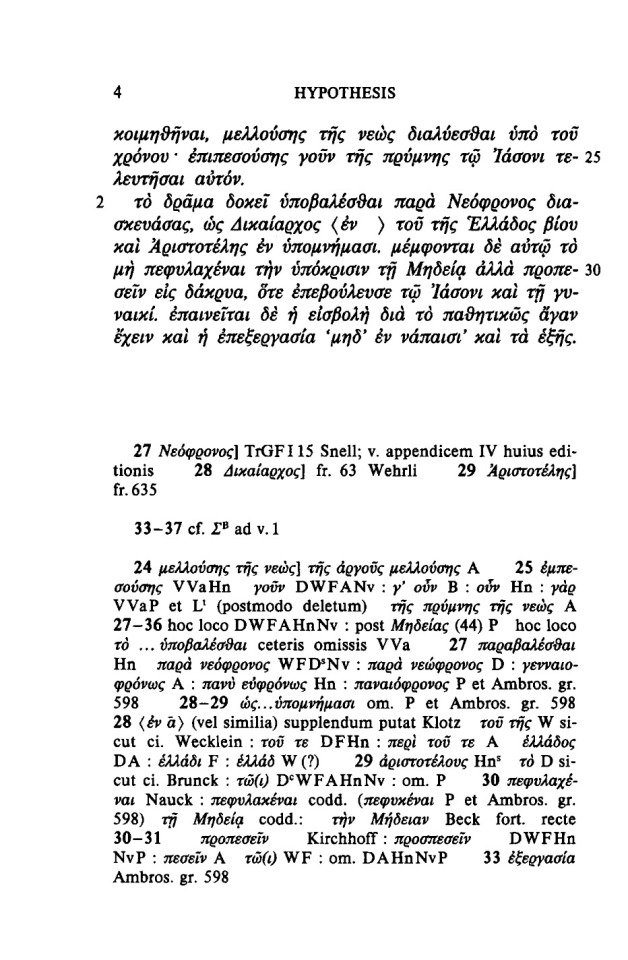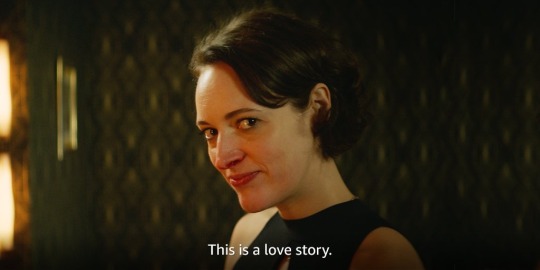#medeablogging
Text
the way κηδεύω (lit. "to care for") can mean both "to marry" and "to bury"... κῆδος really is the source of the best and most pointed puns in greek tragedy
medea calls herself ᾗ χρῆν... νύμφῃ τε κηδεύουσαν ἥδεσθαι σέθεν "the one who should have delighted in *caring for* your bride" which means "connecting myself to her through your marriage" and also "overseeing her marriage to you" and also "tending to her dead body"
#cassandra has a bit with it in the agamemnon where she pretty much says paris made trouble and sorrow his in-laws#which i cant find now so i might actually just be thinking of when the chorus calls paris' marriage κῆδος ὀρθώνυμον#mine#this is not well thought out but: κῆδος! puns!#death and the maiden#medeablogging
3K notes
·
View notes
Text
have to study medea with a class of cis men. killing my own children in rage
6 notes
·
View notes
Text
TREND ALERT!!!
All the ladies get in formation!

Eyeliner is now making a return and is climbing up fast on the ladder of Colchis’ latest fashion trends. Anyone can make this at home - all you need is some olive oil (courtesy of the great Athene herself <3) and some charcoal! Mix the two together and voila! You’ve got yourself some trendy black liner to make those beautiful ox-like eyes pop!! Hera would be jealous girls ;)

Until next time ~
M xoxo
#ancientgreektrends#betterthanhera#justkidding#don'tblastmetoashesplease#eyeliner#forall#beautyhacks#DIY#trending#colchis#medea#medeablogs#CLAN1001
0 notes
Text
i love cassandra's line καὶ μὴν ἄγαν γ᾽ Ἕλλην᾽ ἐπίσταμαι φάτιν, "i know greek speech all too well," after all that fuss earlier with clytemnestra and the chorus trying to figure out whether she understands what they're saying. the chorus doesn't understand what she's just said (in greek) but cassandra knows all too well that it means agamemnon's death and notes the gendered inflection of the words that says that clytemnestra will be the one to do it.
and when medea responds to the tutor after he says θάρσει: κάτει τοι καὶ σὺ πρὸς τέκνων ἔτι, "it'll be okay, you'll come back to your children one day," she says ἄλλους κατάξω πρόσθεν ἡ τάλαιν᾽ ἐγώ, "i'll bring back others first." but κατάγω means both to bring back from exile and to bring down to hades. she's balancing the line on the verb so that she can say what she means and the tutor still hears what he wants to hear. she knows this language inside out and is a master at manipulating it and it's not even her language.
non-greek women who know greek all too well. they have had to learn.
448 notes
·
View notes
Text
currently thinking that perhaps it's her encounter with aegeus and specifically his promise of welcome in athens that triggers medea's idea of killing her children... in tragedy athens is so often the place that takes in and protects wandering and exiled kinslayers (oedipus, orestes, heracles). if medea knows she is already going to flee to athens and be taken in there and protected from pursuit, there's a certain narrative expectation on her to do the thing that usually makes people flee to athens to be taken in and protected from pursuit.
#mine#medeablogging#athens has a... habit of claiming other poleis' expelled scapegoats (to exploit them for hero-cult)
34 notes
·
View notes
Text
when medea kills her children inside the skene they have lines, like “help” and “we’re done for” but also. it’s not written in the text but. does the audience hear screams? the actual screams of the actual children who play medea’s children on stage?
#relatedly. if anyone knows whether ancient plays had curtain calls PLEASE hmu#bc in contemporary theatre there’s something reassuring about seeing the dead rise again to take their bows#it’s a concrete moment of ‘look it was only a play it’s not real’#mine#medeablogging
62 notes
·
View notes
Text
but also medea SAYS ἦ πολλὰ πολλοῖς εἰμι διάφορος βροτῶν. "true, in many ways i am very unlike mortals." this woman is not human. she does not play by human rules or human logic. she can step out of the tragedy any time she wants to and she does.
#mine#kovacs translation ‘I realize I have far different views from the majority of mortals’ COWARDICE#(thats the 1994 loeb)#its line 579 and i would check all my translations right now but i dont have them here#medeablogging
235 notes
·
View notes
Text
clytemnestra insisting she be the one to bury agamemnon (ag. 1541-1554) and medea insisting she, not jason, be the one to bury and mourn her children (med. 1377-1381)... in a very real way, just because they killed them doesn't mean they can't miss them
#the way they insist on collapsing murderer and mourner...#who else is going to bury them? men? mourning is work for women even the woman who killed them#mine#oresteiablogging#medeablogging
175 notes
·
View notes
Text
jeez but to be in the audience at the dionysia in 431 watching medea's monologue about whether she can bring herself to kill her children when she keeps thinking there must be another way and then telling herself no there isn't and she has to do it-- they didn't know! they really didn't know whether she would go through with it! they surely knew the children had to die by the end of the play but they didn't know by whose hand!
#when medea keeps saying stuff like 'i dont want to leave them here for my enemies to kill' thats probably the version the audience knew!#assuming the infanticide was a euripidean innovation like the scholia and other ancient sources say#mine#your grandfather is the sun#medeablogging
123 notes
·
View notes
Text
yet another update on medea's use of the first person plural! so there's been nearly 150 years of philological debate over whether the text of 1056-1080 actually belongs in the play BUT in 1056-7 she addresses her heart in the second person (μὴ δῆτα, θυμέ, μὴ σύ γ᾽ ἐργάσῃ τάδε: ἔασον αὐτούς, ὦ τάλαν, φεῖσαι τέκνων, "no, heart, you shouldn't do this, let them live, miserable thing, and spare the children") and then in 1058 she says ἐκεῖ μεθ᾽ ἡμῶν ζῶντες εὐφρανοῦσί σε, "they'll cheer you up if they're alive and with us there". and in THIS context, the first person plural does seem apt! it's her and her heart. there are two of them. two minds in her, to kill the children or to spare them.
#i really need to just be getting through this as fast as possible but i keep getting caught up on things#bc so much interesting stuff is happening!!! i keep having thoughts!!!#after i finish this i need to read something boring that will give me no thoughts#mine#medeablogging
129 notes
·
View notes
Note
Medea always makes me think of the last lines of Lorde's liability. Like yes mortals you Will watch me disappear into the sun
the first day of greek tragedy seminar my professor really tried to impress that maybe the most important difference between ancient and modern theatre is that while we think of seeing plays indoors in the evenings, ancient greek theatre was performed outside during the day. mentally flooding the theatre with sunlight absolutely changes the way i think about lots of plays, and medea seems to really make full use of the performance setting under the sun. it ends with her standing up on the skene, the real sun high in the sky behind her as she pledges to fly off into it. her grandfather the sun watches the entire drama play out. she physically ascends to be closer to him.
#there may be something similar but a lot more subtle going on in the bacchae with the moment where pentheus sees 'two suns'#and the audience can see their sun but is he seeing the same sun? what is the second sun?#and unstated textually but cassandra in the agamemnon? the entire ion? the sun is watching them too#mine#ask#surrentus#your grandfather is the sun#medeablogging
72 notes
·
View notes
Text
wait. before euripides… had anybody even told the medea story with a focus on that part??? like it seems likely there were lengthy epic-style oral poems that covered similar ground to apollonius’ later argonautica, probably in circulation alongside homer, and we can probably guess that her role in the theseus cycle was well-elaborated-on at least in athenian folktales or lost textual sources of whatever kind, but had anyone really expanded on what happened at corinth and how jason and medea’s marriage ended? i know we’re pretty sure that euripides was the first to introduce the element of medea killing the children, but was he also the first to even tell that part of the story in extended form???
#mine#your grandfather is the sun#a scan of known titles of lost plays is not indicating to me that anyone else wrote plays covering the same material as euripides medea…#(ever. let alone before euripides did)#medeablogging
105 notes
·
View notes
Text
i love pairing random ancient texts based solely on when i happen to be reading them, for instance creon in antigone and jason in medea end up in the same position at the end of the plays, alone on stage lamenting the loss of wife and son(s) due to their own actions and their own oversight in expecting that haemon and medea respectively would react to the breaking up of their marriages with calm and logical recognition that creon and jason had acted in their best interests
46 notes
·
View notes
Text

you know what this is actually the right way to end medea
32 notes
·
View notes
Text
cannot decide whether it supports or completely undermines the plot of medea to cast the title role with a star actress whose name brings crowds all on its own :/
#on the one hand: you get the audience going 'jeez jason youre really going to divorce MARIA CALLAS???'#which is accurate to his underestimation of her ability to fuck shit up#but on the other hand it makes her the center of gravity in a way that obscures how friendless and powerless she is in corinth#mine#medeablogging
24 notes
·
View notes

